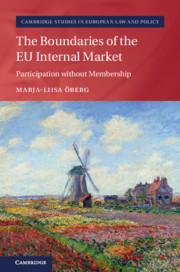The present article seeks to identify the particular culture that undergirds the practice of EU law, by drawing from Paul Kahn’s Cultural Analysis of Law. It will do so by extracting from his work certain models for understanding the imaginative life of a political community, most importantly those of the rule of law and of political action, which in Kahn’s observation of American realities stand in competition to one another. This will lead us, first, to consider the particular place held by European integration, as a messianic project of collective transformation. While this might seem to structure the practice of EU law in a way that is consistent with Kahn’s description of political action, such a view, we will then submit, does not consider the particular place of law in the EU’s legal culture, as the very substance in which the European order appears incarnated, and which provides the impetus for much of its development. To account for these two dimensions in the political imaginary of the EU, it is argued that, unlike Kahn’s description of the American context, the rule of law and political action do not stand in tension with one another. Instead, the practice of EU law operates under an idiosyncratic frame of experience, which can be usefully associated to Robert Cover’s notion of “lawful messianism,” and which synthesizes key aspects of Kahn’s account of the rule of law and political action. Finally, to illustrate the operation of just that culture of lawful messianism and its persistence to this day, the article turns to the place of the rule of law as a “foundational value” of the European legal system and recent developments around this particular norm of EU law.
